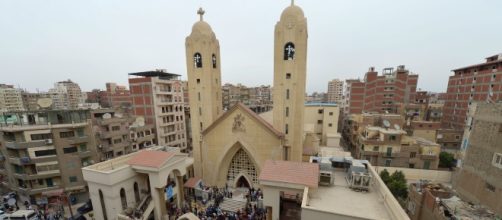New vicious attacks on Coptic Christians in Egypt raised once again questions about the future of this largest Christian community in the Middle East. Since the Egyptian president Abdul Fattah al-Sisi visited the Coptic church and together with the Coptic Christians celebrated Christmas in 2015, eight million members of Coptic Orthodox Church suddenly got hope for a peaceful life in Egypt.
Copts are the largest Middle-Eastern religious minority. After the charismatic Pope Shenouda Iii, bishop Tawadros became 118. pope of Alexandria and all Africa on the Holy See of Saint Mark.
More than eighteen million Copts celebrated this moment, including those ten to fourteen million residing in Egypt. They thought now is the moment to find a common language with unstable government in the country.
Muslims and Christians: From revolutionary friends to bitter foes
The revolutionary unity of Muslims and Copts on Tahrir Square, however, was short. Coptic community still remembers the bomb attack in 2011, when a car bomb exploded outside the Alexandria church, killing 21 and wounding another 79 persons. In the same year a massacre in Maspero happened, when government forces attacked the demonstrators who did not want an old church to be destroyed; 28 people died, and 212 were wounded.
Churches are still put to fire, Coptic stores are sabotaged, and their property attacked.
Most Copts believe it is the Muslim Brotherhood that should take the responsibility. Thus, great and uncritical support to Sisi comes as no surprise. But, Coptic support to the military government may be a bad choice. In mid-2014 a 23-year old Coptic teacher was sentenced to prison for six months, as she „insulted the Islam“. Everything she did, actually, was a comparison between religions in antiquity, Middle Ages, and modern time. Another journalist got five years in jail as he told an American Christian TV station that Egyptian Christians are discriminated.
Copts would like to see more secularised government in Egypt.
Although Morsi's Muslim Brotherhood rule did not act directly against the minorities, for many Copts politics and rhetoric of that government supported fears they had from the Muslim Brotherhood. This fear became more visible after the radical religious leaders and fundamentalist groups became prominent in the Egyptian society. Most of these radical ideas stem not from the history of the Muslim Brotherhood, but from the neighbouring Saudi Arabia. Overall, in last two decades Egypt became much more conservative and radical in Islamic lifestyle. Instead of protecting Coptic Christians, Morsi's government allowed building of mosques on church terrain while some of the Christian churches were forbidden to be constructed.
But it was after Morsi that real violence toward Coptic community began. New military government did nothing to stop the attacks and killing Christians. A great disappointment was also the position of the Coptic Orthodox Church. In critical situations, the Church did not raise its voice. In last days of pope Shenouda III, he was heavily criticised for his support to the Mubarak family. His successor pope Tawadros II. didn't want to be politicised, focusing more to the spiritual unity of the Coptic Christianity, but still encouraged Copts to vote for Sisi.
Sisi: Using Copts for his own political agendas
Officially impartial, Coptic parishes in US, Canada, and Australia organised travel for their members, just to vote for the Constitutional amendments and presidential elections.
Some of them haven't been in Egypt for decades. Coptic media also supported Sisi, declaring those who were against Sisi are in fact pro-Muslim Brotherhood. Astonishingly, Coptic bishops also pointed that Maspero massacre, done already under Sisi's rule, should be forgotten in name of the future Egyptian nation.
It is a heavy burden on the Egyptian Christians, as the Sisi regime turned out to be autocratic and repressing to the civil liberties. Institutional corruption returned, the opposition silenced, while the terrorist organisations connected to Daesh (ISIS) raised their violent attacks all over Cairo, Sinai, and Nile Delta. And Coptic Orthodox Church supported less of two evils. Sisi, on the other hand, used Copts in political sense.
He asked for the support of wealthy Coptic middle class. In order to strengthen the Egyptian power in the Nile Valley, Sisi actively supported cooperation between Coptic and Ethiopic Orthodox Churches and through their bishops to make the bilateral connections between Cairo and Addis Ababa better. When 21 Egyptian Copts were murdered on the Mediterranean coast of Libya by Daesh terrorists, it was an excellent opportunity to Sisi to show his dedication for Coptic issues, and at the same time to gain support in his endeavours against the terrorists.

